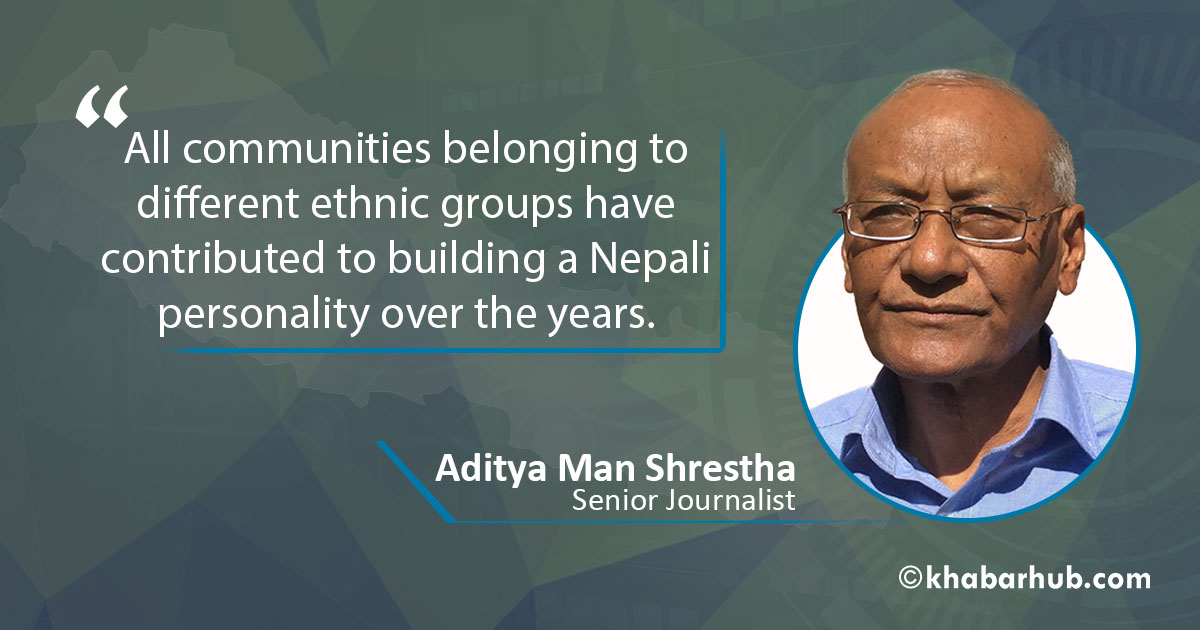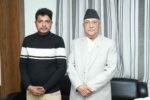Nepal is a country fraught with uniting as well as dividing ingredients. The social harmony that Nepal has been able to achieve and perpetuate for centuries looked brittle under the growing pressure of enhanced ethnic aspirations. When the persistent inequality and differences were politicized by the self-proclaimed revolutionaries, the society showed signs of breaking faults and potential ethnic clashes.
Thanks to the roots social harmony have taken in the Nepalese society it is not so easy to flare up a conflagration. However, the potential danger is unmistakably there and nobody can ignore it. The problem with the modern reforms in political, social and economic structure is that they tended to be more divisive than uniting.
The federal structure has sown the seeds of separatist tendencies. The educational system is responsible for creating awareness of being rich and poor. There is an upsurge of medical facilities in the country but there is a clear bifurcation of people who can afford them and cannot do so. So is transportation, which divides the society between the haves and have not.
Foreigners are held responsible for widening the divisions than narrowing them. For example, the EU touched the raw nerve of the Nepalese society some time back. The matter pertaining to the recommendation to scrap the reservations for the Khas-Arya group aroused eyebrows. It is because the EU is held primarily responsible to sow the seeds of discord and division in Nepal by investing in raising caste and religious issues. It should be fully aware that the rejoinder was instant and aggressive in obvious retaliation of what the EU is perceived in fomenting, flaring and inflaming the ethnic and religious emotions in Nepal.
It is again the EU that is attributed to the blame for declaring Nepal secular with a malicious intention of encouraging Christianity and discouraging Hinduism. A British ambassador to Nepal was recalled for his public advocacy for religious conversion on the eve of the constitutional framing. By spelling out this suggestion, the EU has done more harm to Nepal and itself at a time when the great storm over it has just subsided.
What the West has failed to understand is the basic characteristic of this country. Nepal has thrived as a melting pot since its historic inception. It has retained its assimilating and unifying penchant right from the beginning till now. The world recognizes the American society for being a melting pot. But it is only a little over 200 years old after the declaration of independence in 1776. The Nepali state existed for over 2600 years and it has evolved as a melting pot. The American land is inhabited by migrants from over 200 countries of the world. However, Nepal is manned by people coming from the east, west, north, and south.
The Americans fought a war to dismantle the color bar that divided the society between the north and the south. On the contrary, Nepal never witnessed a war for the sake of social unity. It thrived on social co-existence and political independence. Nepal does not celebrate like the US an independence day because there was never a war of independence. Many countries undergo radical changes in political, social and economic spheres but Nepal has sustained as an ethnically harmonious society.
What needs to be understood in the Nepalese context is that the Brahmins had never before been at the helm of affairs. It is only after 1950 and especially after 1990 that Brahmins have made their strong presence in the ruling class. In fact, democracy and Brahmanic domination have gone hand-in-hand. Thanks to greater brain power, speaking skill and mass mobilization that they have demonstrated in the field of education, religion, and politics, they have been well rewarded in the democratic process and open political contest.
It is very ironic and contradictory on the part of the European countries to support democratization in a big way, on the one hand, and to try to keep the concomitant rising class out of power, on the other. They should be clear that a democratic process, in whatever format or nature, will elevate them to power.
The Khas, who too have been brought in controversy, are often identified with Kshetriyas, who were great warriors in the past. For about 300 years, they had ruled a large chunk of western Nepal. They launched raids on Nepal kingdom in the sixteenth and seventeenth centuries for economic gains and collection of valuables. They never intended to capture and rule Nepal. They went back several times fully satisfied with their booty.
If we look from historical perspectives, all communities belonging to different ethnic groups have contributed to building a Nepali personality over the years. The Mallas, for example, ruled Nepal for 550 years. They helped develop a rich culture, build memorable monuments and temples, which are standing today as the main attraction for tourism.
The Shah dynasty, that lasted for 240 years, is known for unification and integration of the country in the present size, which otherwise was much smaller before they came. The Kirantis ruling for 800 years goes down in the history of Nepal as the best assimilators of various castes, creeds, and customs. Similarly, the Lichchhavis reigning for 450 years demonstrated their skill in international diplomacy and trade.
The ethnic communities like the Magars, Gurungs, Rai, and Limbus, who are yet to rise to power, built up a global reputation for constancy, courage and combating. The Ranas were self-centered but never missed to safeguard national independence. At the present scenario, the Brahmins have come to power and got an opportunity to show their ability in administrative and governance skill. The opportunity should be taken as a natural historical follow-up to various communities to come up and demonstrate their skill. It is for sure not going to last forever.









Comment